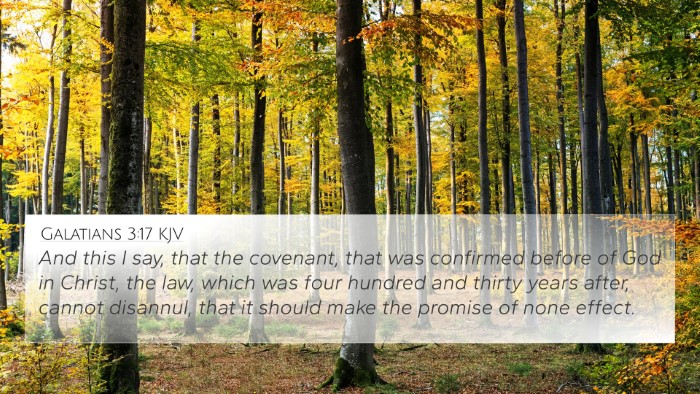Understanding Deuteronomy 5:3
Verse: “The Lord did not make this covenant with our fathers, but with us, the living, here today.”
This verse highlights God's covenant, which is a central theme in the relationship between God and His people. In Deuteronomy, Moses emphasizes the importance of this relationship as it pertains to the Israelite community and their identity as God's chosen people.
Context and Significance
The context of Deuteronomy 5:3 is pivotal as it serves as a reminder to the Israelites of their unique standing before God. It emphasizes that this covenant is not merely an ancient tradition, but a living agreement made with them personally. The significance lies in their direct involvement in the covenant, assuring them of God's active presence in their lives.
Commentary Insights
-
Matthew Henry:
Henry interprets this verse as a declaration of the living relationship that the Israelites have with God. He emphasizes that the covenant is not just historical but is a part of their immediate experience. The living contemporaries of Moses were reminded that God's promises and laws applied to them directly.
-
Albert Barnes:
Barnes notes that the exclusion of the fathers in this covenant signifies a new beginning for the Israelites. He points out that while their ancestors received the law at Sinai, this new generation was called to renew the covenant, emphasizing their responsibility to uphold it.
-
Adam Clarke:
Clarke explores the implications of this verse regarding the nature of God’s promises. He asserts that the covenant made is dynamic and implies an active responsibility from the Israelites to adhere to these divine laws. Clarke connects this verse with the concept of living faith and obedience.
Bible Verse Cross-References
This verse connects deeply with several other scriptures, underscoring the theme of God's covenant with His people:
- Exodus 19:5-6: God declares Israel as His treasured possession, reiterating the covenantal relationship.
- Deuteronomy 7:6: The chosen status of Israel is highlighted, affirming their unique relationship with God.
- Psalms 78:5: This verse speaks about God's covenant and the responsibility of each generation to remember His laws.
- Jeremiah 31:31: This points to the future new covenant, showing a continuity of God’s agreements through time.
- Ezekiel 36:26: God promises a new heart and spirit, further expounding on the new life that comes with the covenant.
- Hebrews 8:10: This New Testament reference reinforces the theme of God's desire to write His laws in the hearts of His people.
- Romans 9:4: Paul emphasizes the privileges of the Israelites, including the covenant responsibilities owed to God.
Thematic Bible Verse Connections
The themes present in Deuteronomy 5:3 can be seen resonating throughout both the Old and New Testaments. The idea that covenant life should actively reflect God's laws is echoed in:
- Matthew 5:17-18: Jesus affirms the importance of the law, showing its relevance in His ministry.
- Galatians 3:14: Paul's discourse on the blessings of the covenant and the importance of living by faith.
- 1 Peter 2:9: A look at the chosen people theme, applying it to the church today, which echoes Israel's selection.
Inter-Biblical Dialogue
Deuteronomy 5:3 fosters an inter-Biblical dialogue that links the experiences of the Israelites with the teachings of Jesus and the apostles. This verse serves as a foundational truth concerning God’s character as covenant-maker and the nature of God’s expectations for His people.
Practical Application
For modern readers, understanding Deuteronomy 5:3 can guide believers in recognizing their own covenant relationship with God. The covenant extends beyond mere history; it invites believers to engage actively in their faith, embracing God’s laws as a living guide in their lives today.
Conclusion
In summary, Deuteronomy 5:3 encapsulates key theological insights regarding God's ongoing relationship with His people. The reflections from commentaries, along with the established cross-references, reveal the rich tapestry of Biblical themes surrounding covenant, obedience, and divine promises. As believers explore these connections, they gain deeper insights into their faith and practical steps toward living out their covenant with God.










